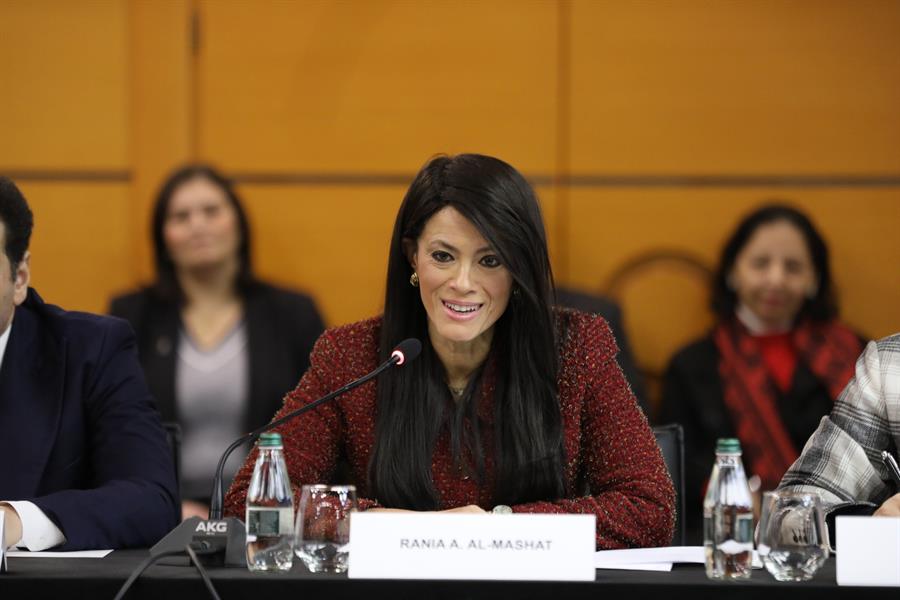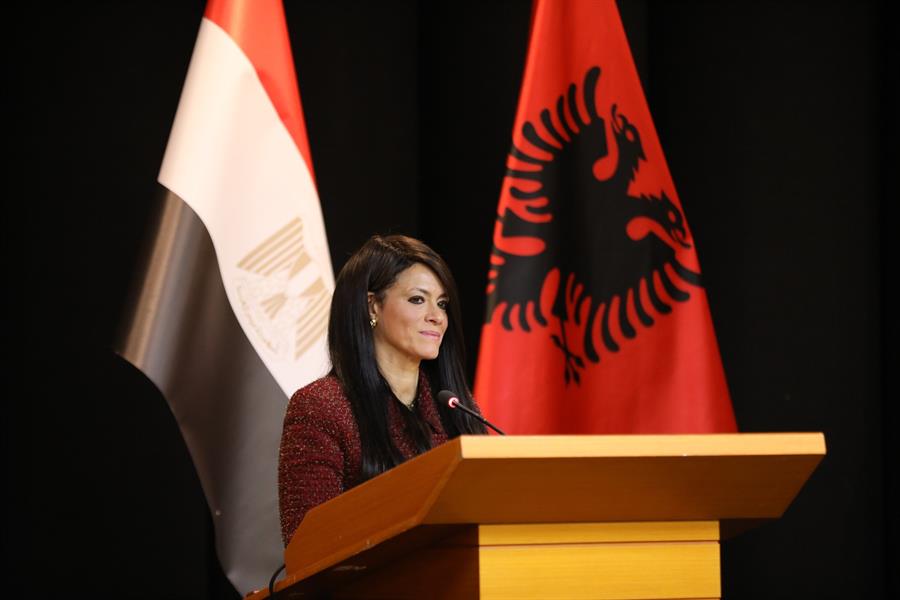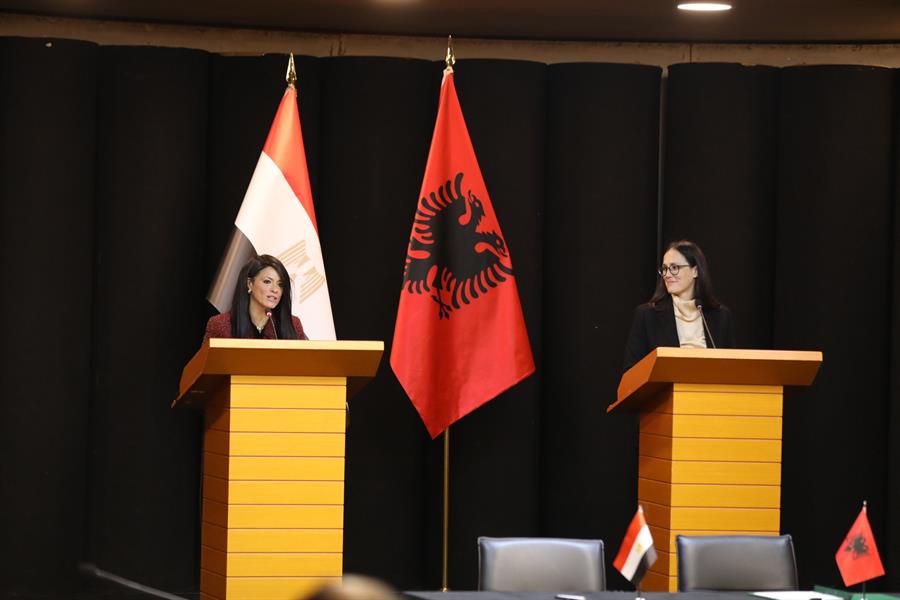Egypt’s Planning Minister Advocates Global Collaboration for Sustainable Development in Asian Financial Forum

24 January 2024
H.E. Dr. Hala El Said, Minister of Planning and Economic Development, participated today in the second plenary session held within the activities of the 17th edition of the Asian Financial Forum, themed "Multilateral Cooperation for a Shared Tomorrow," taking place on January 24 and 25 in Hong Kong, China.
The session titled "Multilateralism for a Sustainable Future" discussed the importance of multilateral cooperation and harnessing its power for sustainable development. Speakers included Dr. Mohamed Suleiman Al Jasser, President of the Islamic Development Bank; Dr. Alexandra Gour Schröder, Deputy Director-General at the Directorate-General for Financial Stability and Financial Services of the European Commission; Dilma Rousseff, President of the New Development Bank affiliated with BRICS; and the session was moderated by Christopher Hui, Secretary for Financial Services and the Treasury in Hong Kong.
During the session, Dr. Hala El Said addressed global and regional repercussions, noting the world's economic challenges, such as the increased frequency and intensity of global crises like COVID-19, climate change, geopolitical tensions, and disruptions in global supply chains. She emphasized that advanced and developing nations alike implemented unprecedented financial measures domestically in response, resulting in significant negative impacts on the rest of the world, especially for many developing countries.
El Said added that nearing the deadline for the 2030 agenda, there is a need for international commitment to boost development financing and accelerate progress towards sustainable development goals. She highlighted the Sustainable Development Goals (SDGs) Incentive Initiative launched by the UN Secretary-General in 2023, outlining necessary measures to address development financing access and related mechanisms, contributing to an annual increase of at least $500 billion in low-cost development funding and expanding emergency funding for needy countries.
She stressed the urgent need to enhance inclusivity, focusing more on global responsibility in pursuing sustainable development. El Said emphasized that progress is achieved through collaboration rather than individual efforts, pointing out the interdependence between economies and ecological systems, necessitating cooperative efforts that transcend borders and ideologies.
The Minister discussed various issues affecting the global economy, including inflationary pressures and food insecurity. She highlighted rising food prices as a primary cause of food insecurity in developing countries, impacting poor families spending a larger portion of their income on food. In 2023, approximately 238 million people experienced severe food insecurity, a significant increase of 21.6 million compared to the previous year. El Said linked inflationary trends in developing countries to exacerbating poverty and reversing some progress in poverty reduction.
Addressing climate change, El Said emphasized the urgent need for climate action, citing various weather events in 2023, including wildfires, floods, and droughts. Climate crises negatively impact agricultural production, tourism, and economic stability. Developing countries face immense funding gaps for climate adaptation. She further discussed the issue of debt sustainability as a crucial factor affecting the global economy, explaining that rising debt levels and changes in global financial conditions pose significant challenges for developing countries. Increasing global interest rates escalate debt service costs, affecting over 50 developing economies. El Said noted a decline in official development assistance, exacerbating financing pressures and limiting governments' ability to stimulate recovery and growth.
She emphasized that these challenges require a collective response through multilateralism and enhanced international cooperation. Additionally, there's a need to increase the capital base of multilateral development banks, adjust business models to attract more private financing at affordable costs for developing countries. El Said highlighted the necessity for an effective debt resolution mechanism to free up financial space for vital investments in health, education, social protection, jobs, digital infrastructure, and renewable energy.
El Said concluded by stressing the importance of prioritizing policies that promote economic growth and social well-being while addressing sustainability challenges. Policymakers, financial officials, and stakeholders have the opportunity to shape a future that embraces inclusivity, focuses on citizens, and upholds global responsibility and transparency towards a more resilient, inclusive, and sustainable global economy.









